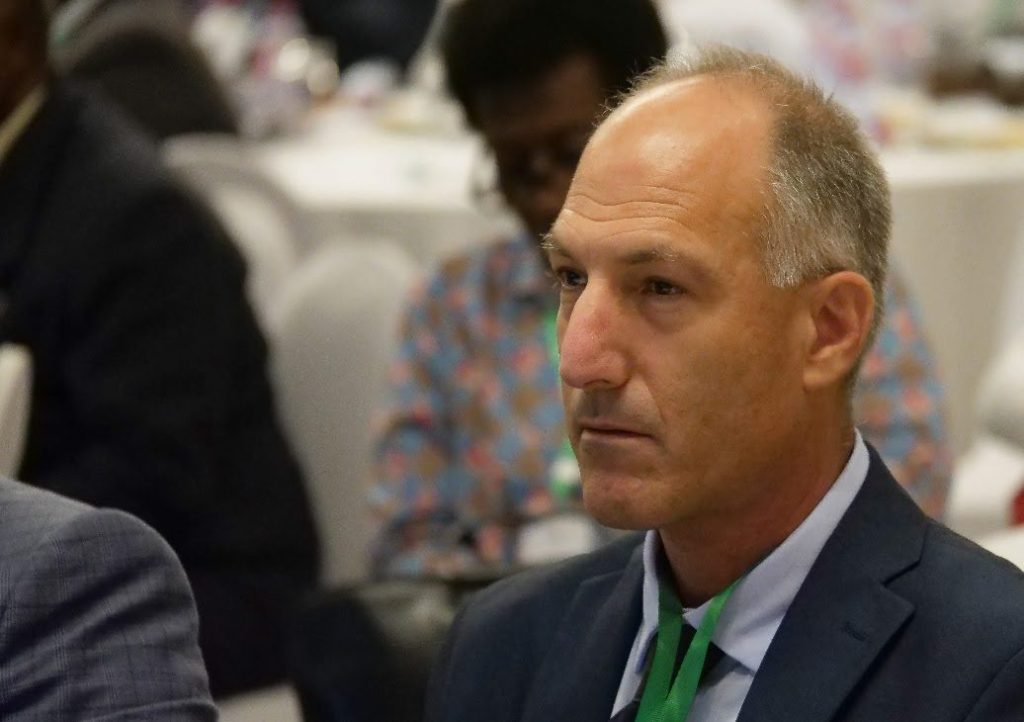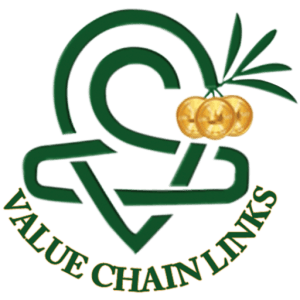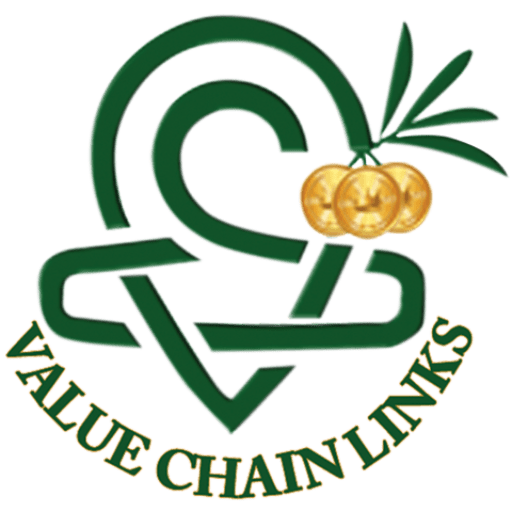CAN UNICORNS GROW IN THE VAST PASTURES OF AFRICA?

by dr. Nimrod
| Years ago, I learned that when someone says “This is impossible,” it ends up “Possible” some years down the road.Successful business people, visioners, and entrepreneurs see Opportunities where others see Nothing and Possible where others see the Impossible.They are not over-optimistic or blind to “problems”; they are blessed to see the world “beyond its current challenges” to see it differently. |
 |
| GLOBAL UNICORNS“Unicorn” is a term coined to describe a startup company with a valuation of over $ 1B. They are appreciated and valued for solving, better than others, global or industry challenges. |
 |
| When looking at the 2021 leading countries “giving birth” to Unicorns, we see none of the African countries.Today’s Unicorns succeed by solving the problems of the rich and highly developed industries and countries, the issues of those who have access to plentiful financial resources.Currently, there are 963 Unicorns globally, of which 43 (≈ 5%) originated from Israel.That is against any statistics and logic: a small country, small population, surrounded by enemies, far from the global markets; the cards were always stacked against Israeli entrepreneurs.Hence, ask yourself, “How is it possible? Has Israel been blessed with Unicorns, although or maybe thanks to its “impossible” challenging conditions?”Note that all (100%) of Israeli Unicorns are active in fields that Israelis already excel in. Their marketing strategy focuses on export markets to maximize the global business potential (* the local Israeli market is strong and can pay premium prices, but it is tiny and serves mainly as Beta-site for innovation).And one more thing, most investments in Israeli companies are made by foreign investors.To summarize: Israeli Unicorns are focused on (1) challenges they are well familiar with, (2) global export markets, (3) foreign investors who are familiars with the target markets.Could this list be useful for African-based entrepreneurs or ones mainly focused on Africa? THE QUEST FOR AFRICA’S UNICORNSWhere will Unicorns grow in Africa, and under what conditions?To answer this, let’s look at “the Israeli case.”Like Israel, most African countries don’t have a robust local market to grow and support Unicorns (* it is a big market but not strong. Therefore, it cannot buy at a premium price but can serve as a Beta-site). It dictates that export-related businesses are the main (the key) way to grow African Unicorns.The next question would be, what can Africa export?The world needs more quality food grown in a sustainable, healthy, eco-friendly manner. The world is also looking to fight poverty and hunger. The world needs more agricultural production.Africa’s natural characteristics of vast and fertile land, plenty of water and rains, warm climate, and high workforce availability are the perfect place to answer those needs and demands and serve as the world’s food barn.Where should we start, and with what type of produce? Where we have a clear advantage!Why don’t we imitate the Israelis and sell high-quality products to global premium markets?Let’s elaborate on the Quality and Pubic demands issues?In recent years there has been a global hype, but more so in developed markets, of buying produce/food that resonance with our values without compromising its quality and taste.“Values” include, among others, targeting zero sprays (minimizing the use of chemicals), zero environmental disruption, zero emissions, social awareness, consideration of ESG (Environmental, Social, and Governance), and the UN SDG (Sustainable Development Goals).To follow “the Israeli model,” we should look for investments coming, mainly from investors outside African territory, ones who see and understand “the global market demand.”Last, but by all means, not list, technology and know-how should also be imported, whenever possible. Remember that developing those is a long and expensive process.It took Biofeed and me nearly 30 years to develop the Freedome technology, the unique formulas for the different fruit flies, and the Fruit Fly Certified Trade Zone protocol. Are African countries (and others) ready to invest 30 more years and lots of money for the chance of maybe coming up with their own solution? If they do, they should consider that in 30 years, the rest of the world would already be well ahead.Investments are needed to shorten the “long” development period and to add know-how and experience, while the price tag for getting it will reflect the decades we save by doing so.Israeli experts and technologies can support such initiatives and opportunities in the agro sector. In short,Africa’s Unicorn should be based on the continent’s natural advantages for producing fruits, vegetables, commodity production (in this order), and exporting as much as possible.Investments, technologies, and know-how should come mainly from foreign origins (at least at first).As time passes and Africa grows stronger, a more significant part of the market will shift to inter-continental trading. More investments, technologies, and know-how will come from local sources.Any entity or setup (company) that can integrate the above criteria to form a sustainable stream of high-value produce/food exported from Africa to premium markets is holding a good chance of receiving a market valuation of over $ 1B, becoming an African Unicorn.Africa is big enough to give birth to a high number of Unicorns. CAN IT BE DONE?You may think, “In theory, everything is possible, but in reality, with Africa’s many smallholders, having a Unicorn based on such population is hardly a visible possibility…”I have one answer; whether you think that it is possible or impossible, you are right. The decision is yours, so there is no point to argue or convincing.However, allow me to share with you some numbers, and maybe you will change your mind and opinion about the probability of growing Unicorns in Africa. THE MANGO INDUSTRY MULTI-BILLION OPPORTUNITY(hard facts and numbers)Mango and mango-based products are perceived as tasty, healthy, and exotic.The global mango products market size is currently at 60 million tons.The mango market value at $20 billion.The Export/Import of mangos value is ~ 4B USD.How much of it is the share of your country?Annual growth is 6.5% (or higher), translated into an annual value increase of 250M USD.Major importers are China 920M USD (up from 200M USD in 2017), the USA, and the EU; each is over 700M USD.Currently, ALL African countries export only 70,000 tons to the EU, but zero or near zero to China and the USA markets. How much would you value a company that would enable African countries to increase their mango export to 25% of the global market value? Those, in parallel with removing phytosanitary requirements regulatory barriers!And one more question, if we were in 2017, while China’s mango import was “only” 200M USD, would you believe me if I told you it could grow by almost five folds in 3 years!?Consider the Return on Investment (ROI) you could have IF you invest in 2017 in mango export. Don’t worry; the bright days of the mango industry are still ahead and looking better than ever before. Do you still think Unicorns can’t grow in Africa? AFRICA (MANGO) BUSINESS PERSPECTIVEMango was first introduced into East Africa in the 10th Century. Since then, it has been grown by smallholders and is well known and loved by most Africans (big market, but weak with low demands and low prices).Fifteen years ago, an invading species of fruit fly, Bactrocera dorsalis, invaded West Africa and swiftly the entire continent.As a result, the fruit infestation rate soared to staggering rates of 50% and even 80%, which brought economic devastation upon the entire industry and millions of smallholders.Today the yield and income of African mango growers typically vary from 5 to 10 tons per hectare, resulting in a revenue of only 500 to 1,000 € per hectare.The benchmark: the yield and income of an Israeli mango grower; 50 tons result in an income of € 50,000 per hectare. That is 50 to 100 times more than the African grower!Thanks to the Israeli benchmark, we understand the potential economic growth per hectare of African mango growers.Working with African mango growers and knowing the environmental conditions, I know they can do as the Israelis if given the right conditions.Hence, we can visualize and predict the African mango industry future (if taking the Israeli path). Therefore, the potential for high and fast ROI on investments in the mango industry is here today.As an investor, keep in mind, today the income per hectare of African mango growers is only 1% to 2% of that of the Israeli grower.Imagine the impact on farmers and the national economy of African countries when we increase the value of African mango growers to be 10% to 20% of that of the Israelis.Imagine getting rid of fruit fly infestation without using sprays, no chemical of any kind coming in contact with the environment. Imagine increasing the mango exports by ten folds and more.In 2021 Senegal nearly doubled its mango exports to the EU due to Green Valley running a small pilot.This is not a surprise for those who follow Biofeed and Green Valley, for increasing farmers’ income by tens or hundreds of percent is our standard, be it in Asia (India) or Africa.If your country doesn’t export to premium markets, such as the EU, imagine what it would be like initiating huge masses of high-quality mango export.Do you see the economic potential of rapid export increase for the farmers of your country, the national economy, and the industry’s business opportunity?Do you see the economic potential for Your Investment and the incredible huge (actually unique positioned), long-term profitable business opportunity that is hard to copy? CAN YOU THINK LIKE A UNICORN?The mango industry has an incredible global potential, which African countries can exploit for their benefit.However, it is not the only one, to name a few – avocado, citrus, vegetables, beverage, etc.African countries must EXPORT. They must excel in exporting fruits, vegetables, and other agricultural products of high added value.This is an opportunity for many Unicorns to graze in the vast pastures of Africa. This will begin a new era for Africa’s agro-industry and economy.This is YOUR opportunity to become a very profitable INVESTOR in a hidden opportunity and be part of an African UNICORN. Do you still don’t see an African Unicorn?Do you still don’t see the Blue Ocean?Do you think this is impossible? BELIEVE IN YOURSELFWith its groundbreaking zero-spray fruit fly management technology and protocol developed by Biofeed, Green Valley can be an African-made Unicorn.Like other unicorns, it will contain a mix of novel technologies, know-how, and investments, often from outside Africa and fully oriented toward the global export markets.But most important, Unicorn will create jobs in Africa, bring investments, prosperity to farmers, and bring the trust and belief that Africa is and can be the global food barn to China, India, the EU, and the USA.Africa’s agro-sector can grow many Unicorns, and the more there will be, the more prosperity and good fortune will arrive at the farmers and their communities.African leaders, open yourself and your countries to opportunities and change. There will be no stepping forward towards prosperity without change.Investor, do you prefer seeing Unicorns that shoot rockets to Mars, or do you value more life on Earth, our environment, health, food, farmers, and the future?Africa is not “toxic,” as some investors say. Africa is a Blue Ocean for those who open up their eyes and see the real opportunities that arise before them.If you are not sure, Green Valley and I would be glad to help you realize your dreams for a better world and a better business for yourself. TAKEAWAYS» AFRICA is the last and with the least number of Unicorns.» OVER 50% of Africans livelihood depends on agriculture, and Africa is naturally suitable for large production of agro-products.» MADE IN AFRICA, UNICORNS will benefit themselves, Africans, and the world if they are focused on Africa’s agro-industry.» AFRICA’S AGRO-INDUSTRY has hidden business opportunities, very profitable for INVESTORS, with a high probability of turning into an African UNICORN. |
| I know this year will be your best, so far. Make sure you do the right thing with it. |
| If you enjoyed the article please share it with friends & colleagues. |

